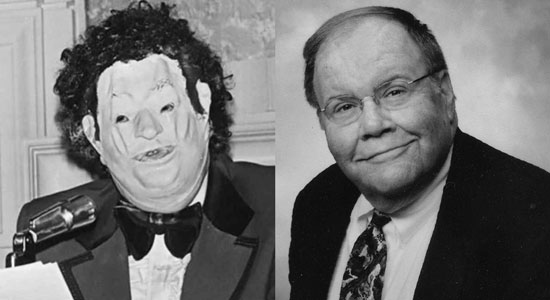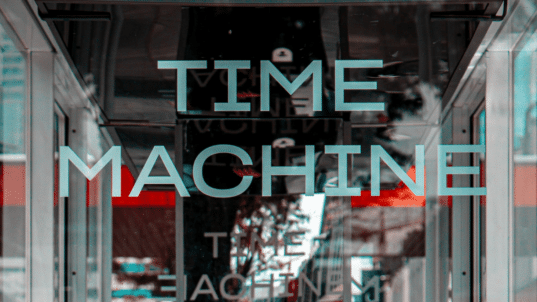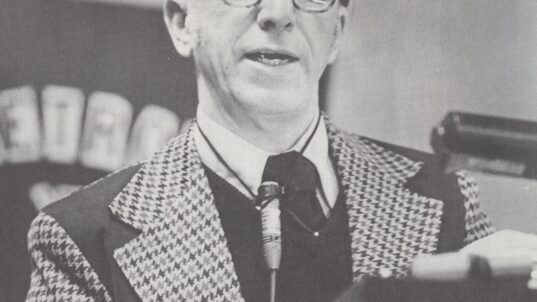
John Fryer, with and without his mask via equalityforum.com
John Fryer was born in Kentucky in 1937. Being very bright, he graduated from high school when he was 15 and college when he was 19. He then went to medical school where his interests were in psychiatry. John happened to be gay.
After receiving his medical degree in 1962, John began a residency in psychiatry at the Menninger Foundation in Kansas. John suffered from depression resulting from the need to hide his homosexuality and was advised to resign his position. He took up a residency at the University of Pennsylvania, but was forced out when he was outed as a gay man. At the time, homosexuality was listed as a mental illness in the America Psychological Association’s (APA) Diagnostic and Statistical Manual of Mental Disorders (DSM). The 81 words that classified homosexuality as a mental illness were devastating to gay and lesbian individuals.
In the early 1970s, protests were staged at the APA national conventions in support of removing homosexuality as a disorder. While there were plenty of activists pushing to reclassify homosexuality, they sought a gay or lesbian APA member to speak at the convention and make the case against the 81 words from within the organization. They struggled to find someone willing to speak.
John eventually agreed to speak—if he could appear wearing a mask with his voice modified. John was well aware of the negative employment consequences he might face if he were outed. At the 1972 annual meeting of the APA, he was introduced as Dr. Henry Anonymous. His presentation had its intended impact. In 1973, the 81 words describing homosexuality as a mental disorder were removed from the DSM, the guiding manual on mental disorders.
John Fryer was a true hidden hero for his efforts to bring understanding of homosexuality within the field of psychiatry and, by extension, to the broader society. As Barbara Gittings, organizer of John’s speaking event and a gay-rights pioneer, noted at the time, “If, with just a stroke of a pen you can make people well who were considered sick the day before, that underscored it was not a sickness in any real sense.” The fact that he had to do it anonymously says a lot about the openness of the scientific community to new perspectives.
In spite of the huge impact that John had on his profession, he did not reveal that he was Dr. Anonymous until 22 years after his convention speech. Fifty years after his speech, LGBTQ+ citizens are still being demonized by politicians and others as a way of attracting followers pushing a backlash against civil rights. Just recently the Texas GOP approved a party platform that states that homosexuality is an “abnormal lifestyle choice.” Just imagine if we followed the path of progress of heroes like John Fryer and created and sustained a more free and equal society for all our citizens.
* * *
“Finally, pull your courage up by your bootstraps and discover ways in which you as a homosexual psychiatrists [sic] can be appropriately involved in movements which attempt to change the attitudes of both homosexuals and heterosexuals toward homosexuality. For all of us have something to lose… We are taking an even bigger risk, however, in not living fully our humanity, with all of the lessons it has to teach all the other humans around us. This is the greatest loss, our honest humanity, and that loss leads all those others around us to lose that little bit of their humanity as well. For, if they were truly comfortable with their own homosexuality, then they could be comfortable with ours. We must, therefore, use our skills and wisdom to help them and us grow to be comfortable with that little piece of humanity called homosexuality.”—Dr. John Fryer (from written notes for his APA presentation)



